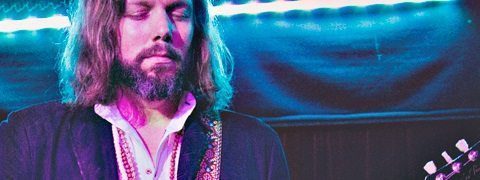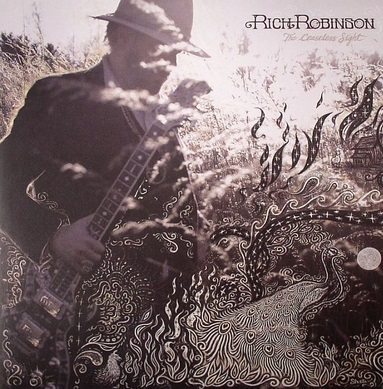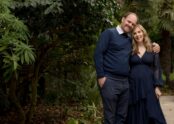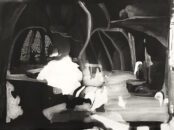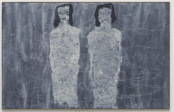[dropcap style=”font-size:100px; color:#992211;”]T[/dropcap]hey might be little remembered but for a while The Black Crowes threatened to become the biggest band in the world.
They certainly moved in the company of those high flying platinum groups that gave the record industry their last pre-corporate hiphop, pre-download thrills. Indeed they were perhaps even the last great central rock act, before things became grunge or alt.
At the heart of the band were two brothers. Chris and Rich: slim, good looking, passionate and driven, they carried it, and linked a new generation with a credible musical past that alt, punk and grunge weren’t as initially eager to embrace (until Nirvana Unplugged and Pearl Young/Neil Jam that is).
Time, band tension and a willingness to forge new paths eventually put the band on hiatus, and the brothers forged solo careers, paths into different musical horizons where they developed ideas of themselves perhaps redundant in the presence of the other.
2014 sees the brother Rich well into a prolific solo career and emerging from a personal peak with a new record. The paths of the past being what they are, this new record sees the man expanding consciousness and pushing the roots of rock genealogy another generation on.
Walking into the hallowed halls of the Gibson guitar rooms in London, rock mythology swirls from every corner, the pirate fictions of guitar heroes bursting from v-shaped flight cases like spilt whiskey over swollen chests.
In such a setting, we find Mr Rich Robinson, at ease amongst tour-worn wood and eager to discuss his new record; The Ceaseless Sight.
Rich Robinson: I just kind of went in and I had some skeletons of songs, parts. Like I had a verse or a chorus or whatever, and I just wanted to run in and use the studio, the energy of the studio just to work it out. If I needed a song, I would just write one, and I did. Someone hadn’t finished these parts, I would do it. And normally with the Crowes, or whatever other records I had, I would have more solid ideas, or more like put-together songs, which was sometimes out of necessity. But for this, I just wanted to see what happened, and just went into the studio, used that sort of springboard of creativity to deal to see what would happen.
It’s still a very acoustic sounding record. But there is that sense of … movement to it, is that kind of coming out of jam studio kind of process or were you a bit structured with it as well?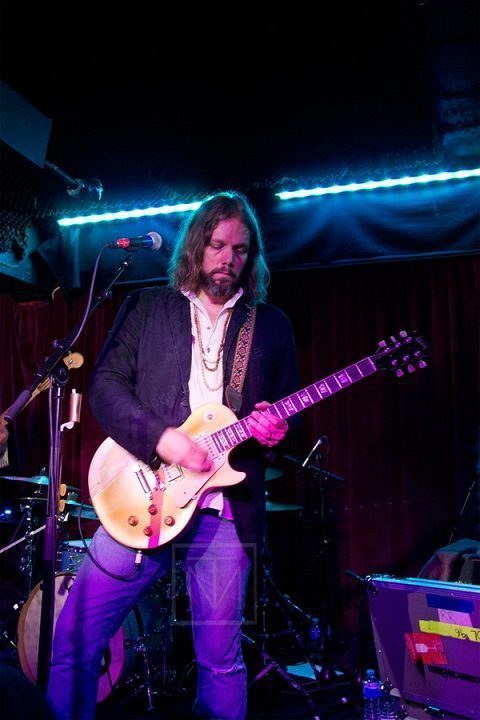
No, I think it was more of a jam process. And also, I layer guitars a lot of time. So most of the songs I write on an acoustic anyway, and just to kind of bring that in and then build around it, more like Led Zeppelin III or records that moved me as a kid.
The record’s really interesting. Kind of vocal and lyrical. It’s certainly not a sad record but there is a yearning there, and hopefulness. Where is this coming from?
Well, it’s definitely more of a positive record, and just kind of coming through a place and changing as a human; just my wife and I, what we’ve gone through over the last ten years together. And also moving to Atlanta. I moved to Atlanta a few years ago. My dad had cancer, and I moved down there to be with him and a lot of that, I think, had to do with some of that process.
Hanging out with him and helping out etc. Just more of, like, a spiritual place, more like a spiritual view of life and how that was kind of coming into my life and being around it and stuff like that.
But there’s also a positivity to it, to be able to be with my father, to be around and to help and do, get to know him and understand those things, and also to be OK with everything It took a lot to get to that place. But, I think a lot of that came with me on this record, and also a leaving behind of the old. You know, I moved to Atlanta to be with my dad. I knew the Crowes were going to go on tour for ten months the next year. I had two small babies and also my wife, and I decided to move to L.A. because her family is out there.
So I was leaving that past, I was leaving Atlanta and a lot of things when I was living there kind of came to completion. Almost like, ‘OK I’m done with this place and it’s time to move forward’. And all of these things, and there is a moving forward theme to the whole record, and not looking backwards, not holding on to it and just letting shit go, just letting it, purging it, letting all that go.
That also had to do a lot with losing all my equipment, you know, when the flood came with Hurricane Sandy … my warehouse was basically squandered. I lost about sixty guitars, all my amps and I lost my sitar. Basically anything and everything I had was in there. I think it was about five or six guitars that made it, but I was kind of OK with it, just kind of ‘the water came and took it all away.’ It was a bummer but at the end of the day, it was like, stop, it’s just piece of wood with some strings on it, or any piece of wood with the strings on it.
And going into studio, not having 30 guitars and all my amps and just kind of going in with five guitars saying, OK,well, this is it! We have to work in this parameter. So there are a lot of things that culminated in this record that really pushed it in that more positive and forward way.
You said spirituality, and there’s a very strong spiritual vibe to this record. The lyrics here are less visually motivated, more literary, certainly there are a few references to the Bible. Did you consciously want to make a concept, thought-focused record?
Yeah, more concepts, more thinking. My wife is a Apache Indian, and we had gone to some ceremonies. We spent time on the reservation with her family and have done some ceremonies and really brought that positivity in , ushered some of that into my life a little bit more. It really shifted a lot, just in our lives and our motion forward. So there’s been a lot of that positivity that’s come to us that I’m grateful for. So it just kind of happens in my lyrics and what I see, all these filters, all these things that we go through in life that comes through and comes out this way.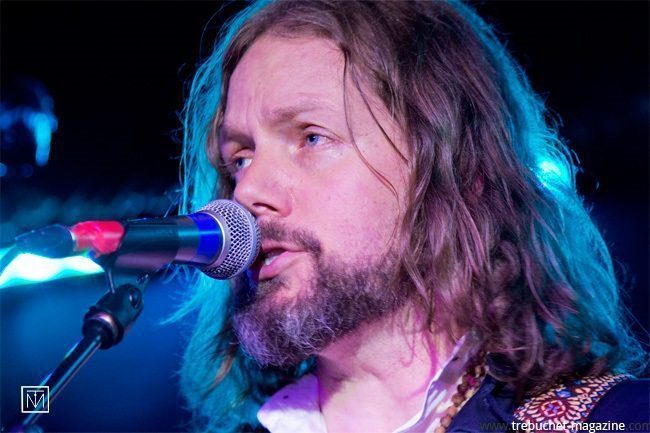
A kind of a refining process?
Yeah, it’s always a refining process to me. You know, life happens, and music is esoteric and subconscious. You know, it’s not like, I’m in a bad mood, I am going to go and write an angry song. It just kind of comes, it comes from something that could have happened 12 years ago. All of a sudden it just pops its head up and it comes.
But it’s all based on how you feel. How does that song make you feel, how does this part make me feel? Because, ultimately, I can only write for myself, and if people like it, that’s great. And if they get something out of it, that’s great. Everyone has such an individual concept of what they get out of the song. I could write a song that’s this sort of love song, someone could get something totally different out of it.
What’s really interesting about it is that everyone has their own relationship, their personal relationship with songs that move them. And for whatever reason it puts them in a place, it puts them in a mindset, it reminds them of these things, and that’s what’s really interesting about that.
So, are you a person that talks about lyrics, or are you going to keep it as something other people can get into?
Yeah, I think it’s always cooler. You know, what I wrote means what it means to me, and there is literal sort of definition of what it might mean or what it meant to me, but there’s also a lot of metaphor, a lot of things that you can delve into. I mean, I’ve always been into music that the music part that takes you somewhere and creates beyond that.I’ve always been into lyrics that have these sorts of broad universal themes that you can choose from.
The track ‘Trial and Faith’, has a real ‘Sympathy for the Devil’ vibe. Do those ceremonies impact on that? There’s a couple of tracks on the record that have that kind of percussive vibe to it.
I’ve always been into that. And Joe and I work really well together for that reason. A lot of time signatures or whatever I write, I just kind of write the part and I don’t count it. But for ‘Trial and Faith’, in particular, I wanted a song like ‘Isis’, you know, the Bob Dylan song? And it’s this thing that just kind of bubbles and goes and moves along and I really like that concept of something that doesn’t change. It’s just this thing like keeps kind of going but tells this amazing story.
So I have this part, I wanted to deliver it in a 60’s kind of Beggar’s Banquet sort of thing , and I wanted the guitar to be similar to the violin that’s on ‘Isis’. So it was a concept song. I had this thing and I’d just written that one part.I went into the studio and I was like, actually, I don’t really need to take this anywhere, I just want this to be like this. So it was kind of cool to do that.
Starting with Black Crowes and leading into your solo work. You have a very strong connection with… ‘Roots Rock’. Maybe that would be one term for it, ‘Americana’ might be another. Has that changed? Has that relationship deepened for you over time?
I’d say Roots Rock more than Americana, because what it really means, and it’s more clear now than it ever has been, is just sincerity and authenticity.
[quote] On the Black Crowes:
Is there a new album?
No.
Do you tour?
No.
Where is it at right now?
Is there any talk?
No, there’s no talk. Chris, he wants to do
his own thing, I’m doing my own thing,
Steve is doing his own thing, it’s just kind
of the way it is. But yeah, at the end of every
tour, it kind of gets to this place and it comes
from one member of the band, (and he shall
remain unnamed but people know who it is).
He tends to have some issues, let’s just put
it that way. Right now, he’s got a lot of issues,
so we’re just not going to do it for a bit. [/quote]
Music that comes from a sincere place. Music that you can believe, you know what I mean? Current music, current popular music I’d say, just comes from this place of, there’s a lot of technical prowess, people have studied and now people can sing a million notes, and people can shred, if that means anything.
There’s no feeling behind it, it’s really difficult to convey that feeling, and what it feels like to me is people trying to be famous or trying to be successful instead of pure expression, instead of something that comes from oneself. It’s not as we use technology to enhance ourselves, which is all we’re really doing. We can use auto tuner, we can use ProTools and edit and make it all sound ….
There are some proper bands that I produce,they’ve never played in the studio live before. They’re like, ‘This guy told us to play a chorus over and over again till we got a good one and we just cut and pasted it’.
Use that same one four times, sixteen times or whatever?
Yeah. And I’m just like, it’s the imperfection that makes you stand out. Bruno Mars is a great singer but no one can sing like Neil Young, and a million people can sing like Bruno Mars. There’s a lot of people that can sing that way. And it’s just these notes, technicality and bullshit, you know whatever it is. Sly Stone never did that, Prince never did that, they were unique unto themselves. Everything’s a paradox – as we head more towards what we think is perfection, the less perfect it is.
The Ceaseless Sight does have a very loose feel to it. When did you know it was right? I’m sure you’ve produced other bands and been through the process, probably three times a year, since 1989, right? So you’ve probably got an attenuated idea of ‘OK, that’s enough’. What was that moment on this one?
With Jon and I, our drummer, we’ve been playing together for 10 years now. I trust what he does. He and I have this connection musically that is really great when you combine. And so, he and I, I mean all of these songs were two takes, three takes, tops, and that’s how we always have been. You just kind of feel it’s got that thing.
You know, sometimes it might not be the most technically played one, they might slow down and speed up but if you think about humanity, when people get excited, they get a little faster, and when people want to slow down, they slow down. I was intending to do that.
Exactly, human time, because that’s your human inclination. Speed up and something makes you feel good, oh shit, this is coming, hey it’s coming, the chorus! And you kind of bring it back down for the verse to reset. So I never shy away from that. I never have. And any band I work with now, if I produce or whatever, I’m like, man, stick with this!
What was the thinking behind the artwork for The Ceaseless Sight?
Well, ‘ceaseless sight’ is looking forward. There’s a line in ‘Down the Road’, it says, “Ceaseless Sight on the Horizon”, and in the pre-chorus, “Into the day we ride away and never to go backwards on our road again/Into the night we’ll ride ahead and not knowing where we’re going or which way we’ll end.” And that’s kind of what it is. It’s not looking backwards anymore. It doesn’t matter, we don’t need to see what’s around the corner like where we feel right now.
The thing is it’s that, it’s an ethereal record, and it’s an ethereal thought, and that album art work is very kind of ethereal too. It’s there, it’s solid, but it’s also not. You know?
Thank you
Thank you.
Rich Robinson: UK Tour November 2014. London 12th November Islington Academy.
[button link=”http://www.richrobinson.net/tour-dates/” newwindow=”yes”] Full Tour Dates[/button]

Editor, founder, fan.

